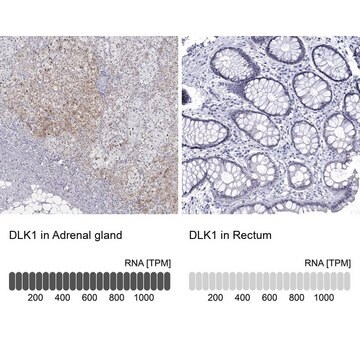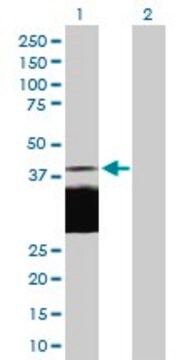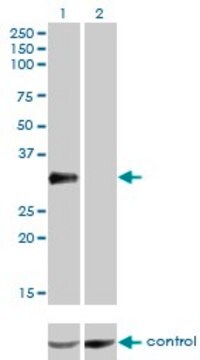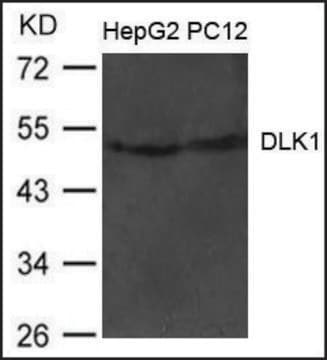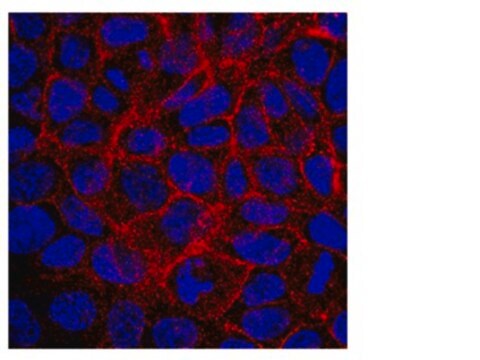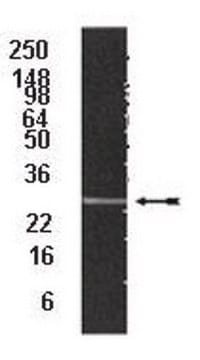MABN671
Anti-DLK1 Antibody, clone 3A10
ascites fluid, clone 3A10, from mouse
Synonym(s):
Protein delta homolog 1, DLK-1, FA1, ZOG, pG2, PREF1, Pref-1
About This Item
Recommended Products
biological source
mouse
Quality Level
antibody form
ascites fluid
antibody product type
primary antibodies
clone
3A10, monoclonal
species reactivity
mouse, human
technique(s)
immunofluorescence: suitable
immunohistochemistry: suitable
isotype
IgG1
UniProt accession no.
shipped in
wet ice
target post-translational modification
unmodified
Gene Information
human ... DLK1(8788)
General description
Immunogen
Application
Optimal working dilutions must be determined by end user.
Quality
Immunohistochemistry Analysis: A 1:100 dilution of this antibody detected DLK1 in human pancreas tissue.
Target description
Analysis Note
Human pancreas tissue
Not finding the right product?
Try our Product Selector Tool.
Storage Class Code
10 - Combustible liquids
WGK
WGK 1
Certificates of Analysis (COA)
Search for Certificates of Analysis (COA) by entering the products Lot/Batch Number. Lot and Batch Numbers can be found on a product’s label following the words ‘Lot’ or ‘Batch’.
Already Own This Product?
Find documentation for the products that you have recently purchased in the Document Library.
Our team of scientists has experience in all areas of research including Life Science, Material Science, Chemical Synthesis, Chromatography, Analytical and many others.
Contact Technical Service
